From navigating a tricky conference to a complete program overhaul, every new coach has challenges in college football. The hurdles new hires have to face in their maiden season can be seemingly endless in the ever-evolving sport but each job provides its own unique set of obstacles.
Between the end of the 2020 season and fall camp, 18 coaches have been hired around the country and each one has a different set of expectations. From UL Monroe all the way to Texas, each fan base has already decided the expectations in store for their new head ball coach.
Let’s take a look at the biggest individual challenge facing new hires ahead of their first seasons.
Big Ten

Illinois Fighting Illini: Bret Bielema
Last team: New York Giants (OLB coach, 2020)
Career head coaching record: 97-58 (Wisconsin, Arkansas)
Biggest challenge: Bringing the formula for Big Ten West success to Illinois. Bielema knows the division better than most — played at Iowa, coached Wisconsin to three league championships — and must install a clear plan for recruiting and development in Champaign. He’s off to a good start with a strong staff of assistants and has reconnected with key high school programs in the state. Bielema knows that developing players and forming a clear identity is the key to success in an improved and consistent division. Illinois hasn’t had any consistent success for a generation, and he will need to find ways to compete with programs (Wisconsin, Iowa, Northwestern) that have won at a good clip for an extended period. — Adam Rittenberg
Big 12
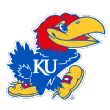
Kansas Jayhawks: Lance Leipold
Last team: Buffalo Bulls (head coach, 2015-2020)
Career head coaching record: 146-39 (Wisconsin-Whitewater, Buffalo)
Biggest challenge: The biggest challenge for Leipold is, well, all of them. The Jayhawks haven’t won more than three games in a season since 2009, and have twice gone winless in that time — including 0-9 last season. He gets a bit of a late start, hired in late April, because he arrives after a scandal forced the ousting of Les Miles. Now, with the future of the Big 12 in doubt, Leipold has to sell his vision and take on one of the biggest reclamation projects in the past few decades. Leipold’s outstanding reputation as a builder will be put to the test. — Dave Wilson

Texas Longhorns: Steve Sarkisian
Last team: Alabama Crimson Tide (offensive coordinator, 2019-2020)
Career head coaching record: 46-35 (Washington, USC)
Biggest challenge: The Texas job is almost inexplicably a pressure cooker. The Longhorns have the resources, allure and recruiting base to contend with anyone, but have won just three Big 12 titles since its founding, and one of those was an 8-5 season in its first year under John Mackovic. Sarkisian says the roster has the talent to win now, but Texas has always had the talent to win now and hasn’t won a conference title since 2009. Bijan Robinson could be a breakout star for him the same way Ricky Williams was for Mack Brown in his first year, and could help build some momentum, which Sarkisian will need. — Wilson
Pac-12
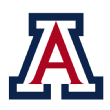
Arizona Wildcats: Jedd Fisch
Last team: New England Patriots (Quarterbacks coach, 2020)
Career head coaching record: 1-1 (UCLA)
Biggest challenge:
After inheriting a team that went winless in the pandemic-shortened 2020 season, Arizona coach Jedd Fisch has an uphill battle to being relevant in the Pac-12. History shows that Tucson is a difficult place to win, and accumulating talent on par with the top teams in the conference has never been easy. He addressed the talent discrepancy right away by hitting the transfer market hard, but which was an important first step. — Kyle Bonagura
SEC
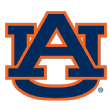
Auburn Tigers: Bryan Harsin
Last team: Boise State Broncos (head coach, 2014-2020)
Career head coaching record: 76-24 (Arkansas State, Boise State)
Biggest challenge: Harsin never blinked when taking over for Chris Petersen at Boise State and won 10 or more games in five of the six seasons in which the Broncos played a full schedule. He now walks into an equally daunting situation at Auburn, which has a bitter rival in its same state that has won three of the past five national championships. Dealing with the shadow of Alabama and Nick Saban wouldn’t be easy for anyone, but Harsin comes in having never coached or recruited in the SEC. He wisely loaded his staff with former SEC coaches and will be putting in a new offensive system. Something to watch for is how much more consistency Harsin can get out of junior quarterback Bo Nix, who could be poised for a big season. — Chris Low
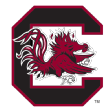
South Carolina Gamecocks: Shane Beamer
Last team: Oklahoma Sooners (assistant head coach/tight ends, 2018-2020)
Career head coaching record: 0-0
Biggest challenge: There was a time when the South Carolina program had a swagger under Steve Spurrier, who guided the Gamecocks to unprecedented heights with three straight top-10 finishes from 2011 to ’13. The biggest reason was because South Carolina reeled in some of the best players in the state during that run, and Beamer played an integral role in putting together some of those recruiting classes. Think Jadeveon Clowney, Stephon Gilmore, Alshon Jeffery etc. Beamer knows as well as anyone how important it is for the Gamecocks to keep the best players in the state at home, and while he will invariably be learning on the job as a first-time head coach, he has a pretty good resource in his Hall of Fame father, Frank Beamer, to fall back on for advice. — Low

Tennessee Volunteers: Josh Heupel
Last team: UCF Knights (head coach 2018-2020)
Career head coaching record: 28-8 (UCF)
Biggest challenge: Heupel’s track record of putting up big numbers on offense and playing at warp speed on that side of the ball is exciting for Tennessee fans, who labored through the Vols finishing 97th or worse in scoring offense each of the past three seasons. Playing up tempo on offense is always a challenge for the opposing defense, but sometimes it creates a hardship for your own defense when you’re forced to play a ton of defensive snaps. This is a Tennessee defense that could struggle initially after losing several of its most talented and productive players from a year ago, including a top signee. It helps that the Vols were able to add some transfers on defense. The other hurdle for Heupel is navigating the NCAA shadow hanging over the program and how severe the sanctions could be once the investigation is complete. — Low

Vanderbilt Commodores: Clark Lea
Last team: Notre Dame Fighting Irish (defensive coordinator, 2018-2020)
Career head coaching record: 0-0
Biggest challenge: Lea, a former fullback at Vanderbilt, returns to his alma mater with his eyes wide open. The Commodores were just 5-28 against SEC opponents the past four seasons (winless a year ago), which means simply finding a way to be competitive is the first of many mountains to climb. Lea has talked about building the program from the ground up, and that means improving the roster through recruiting and player development. Vanderbilt is never going to out-personnel teams in the SEC, especially given the university’s strict admission standards. So during these first couple of recruiting classes, Lea and his staff simply can’t afford to have many misses and will need to find players who fit their culture and are disciplined enough to take hard coaching and get on the field early. — Low
Group of 5
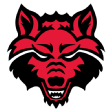
Arkansas State Red Wolves: Butch Jones
Last team: Alabama Crimson Tide (assistant to the head coach, 2018-2020)
Career head coaching record: 84-54 (Central Michigan, Cincinnati, Tennessee)
Biggest challenge: Rehabilitation. After five seasons as the head coach at Tennessee, Jones was fired after a 4-6 finish in 2017. Since then, Jones spent the 2018 and 2019 seasons as an offensive analyst on Nick Saban’s staff at Alabama and worked the 2020 season as a special assistant to Saban. Now, Jones has his first head-coaching gig since spending time at Alabama, which has served as somewhat of an image rehabilitation destination for many college head coaches. — Harry Lyles Jr.
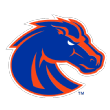
Boise State Broncos: Andy Avalos
Last team: Oregon Ducks (defensive coordinator/inside linebackers, 2019-2020)
Career head coaching record: 0-0
Biggest challenge: Maintaining the expectation as one of their own. Avalos, 39, spent the past two seasons at Oregon, but coached under his predecessor Bryan Harsin at Boise State and both played and coached for the school’s most revered coach, Chris Petersen. A pandemic-shortened 2020 season aside, the Broncos haven’t won fewer than eight games in a season since 1998. As long as Avalos is able to keep the well-oiled machine in Boise running, he’ll have done what’s expected of him. — Lyles

Buffalo Bulls: Maurice Linguist
Last team: Dallas Cowboys (defensive backs coach)
Career head coaching record: 0-0
Biggest challenge: Imperfect timing. Linguist, the last FBS hire of the coaching cycle, comes over from Michigan, where he served as co-defensive coordinator during the offseason after spending 2020 with the Dallas Cowboys. Previously an assistant with the Bulls, he walks into a Buffalo program that won two MAC East Division titles in the past three years. Unfortunately for Linguist, Leipold didn’t leave the program until after spring, and because Linguist was an outside hire, plenty of players hit the portal with an entire new coaching staff. There will be 10 total returning starters and the Bulls will have new systems implemented. But if Linguist is able to have a decent year, it could help him maintain the success Leipold had in his last few years in the program. — Lyles
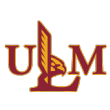
UL Monroe Warhawks: Terry Bowden
Last team: Clemson Tigers (graduate assistant, 2019-2020)
Career head coaching record: 175-114-2 (Salem, Samford, Auburn, North Alabama, Akron)
Biggest challenge: Winning. Bowden comes to the Warhawks having spent the past two seasons as a graduate assistant at Clemson, where he was pursuing a master’s degree. He replaces Matt Viator, who went 0-10 in 2020 and had a 19-39 record during his tenure in Monroe. The bar is going to be very low for Bowden, who takes on his first head-coaching gig since being fired after seven years at Akron in 2018. Monroe is not as easy job, but it’s only up from 2020 for the Warhawks. — Lyles
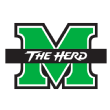
Marshall Thundering Herd: Charles Huff
Last team: Alabama Crimson Tide (assistant head coach/running backs, 2019-2020)
Career head coaching record: 0-0
Biggest challenge: Can he take Marshall to the next level? Huff comes to Marshall replacing longtime coach Doc Holliday. The 37-year-old Huff is about to embark on his first head coaching gig, but already has impressive credentials with a reputation as a great recruiter, and having helped develop Saquon Barkley at Penn State and Najee Harris at Alabama. The Herd are returning 15 starters, so while they might not be favored to win Conference USA, it may not take very long for Huff to have his team building off of what Holliday left behind. — Lyles
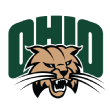
Ohio Bobcats: Tim Albin
Last position: Ohio Bobcats (assistant head coach/offensive coordinator/running backs, 2019-2020)
Career head coaching record: 25-8 (Northwestern Oklahoma State)
Biggest challenge: The simple fact that expectations exist. Ohio had historically struggled to sustain any level of success before Frank Solich’s arrival in 2005, but the Bobcats won four division titles in Solich’s 16 years in charge and finished .500 or better 12 years in a row. Albin was in Athens for all of Solich’s tenure, and he understands everything that has and hasn’t worked through the years. But any step backwards will be noticeable and frowned upon. He needs to hit the ground running. — Bill Connelly
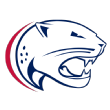
South Alabama Jaguars: Kane Wommack
Last team: Indiana Hoosiers (defensive coordinator/linebackers, 2019-2020)
Career head coaching record: 0-0
Biggest challenge: Building an identity that actually sticks. Joey Jones was a hard-nosed defensive coach who made the Jags competitive but couldn’t ever top six wins. Steve Campbell had tons of offensive success on his résumé but couldn’t ever build a reliable offense. In Wommack, USA has hired another defensive guy, but in a program with no history of success any identity that wins will be just fine. Can Wommack unlock the potential no one else has? — Connelly
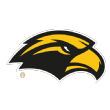
Southern Miss Golden Eagles: Will Hall
Last team: Tulane Green Wave (offensive coordinator, 2019-2020)
Career head coaching record: 56-20 (West Alabama, West Georgia)
Biggest challenge: Offering stability. The Golden Eagles are coming off of their worst season since 2014, and players had to deal with basically three coaching changes in three months — Jay Hopson was out after one game, interim No. 1 Scotty Walden left after four, interim No. 2 Tim Billings went the rest of the way, then Hall came in after the season. A year like this can be a culture-killer. The Golden Eagles have speed, an influx of transfers and a couple of key 2019 contributors back, but early success will require Hall to provide a steady hand that disappeared last year. — Connelly
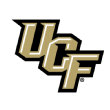
UCF Knights: Gus Malzahn
Last team: Auburn Tigers (head coach, 2013-2020)
Career head coaching record: 77-38 (Arkansas State, Auburn)
Biggest challenge: Winning a specific way. Under Scott Frost, UCF built an incredibly strong identity around speed and tempo, and when he left for Nebraska the school kept its foot on the gas by hiring the up-tempo Josh Heupel, who went 28-8 in three seasons. Malzahn has loads of tempo-friendly success on his résumé, but the identity slowly disappeared over his time at Auburn. His 2020 offense was average in terms of both pace and play-calling tendencies. Landing at UCF offers him a chance to reestablish the fun football he was originally known for, but Knights fans expect him to be fun, fast and good immediately. — Connelly
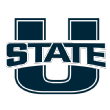
Utah State Aggies: Blake Anderson
Last team: Arkansas State Red Wolves (head coach, 2014-2020)
Career head coaching record: 51-37 (Arkansas State)
Biggest challenge: Figuring out how to stand out again. Back in 2013, the year after Gary Andersen had led USU to one of its greatest seasons, average home attendance at Maverik Stadium was 21,331. In 2018-19, the Aggies still went 18-8, but attendance had fallen by about 10%. Then the bottom dropped out in a horrid 2020 campaign. Anderson proved himself as a quality head coach at Arkansas State, but he’s leaning heavily on the transfer portal to rejuvenate the roster, and he’ll have to produce fireworks to rebuild energy and support. — Connelly